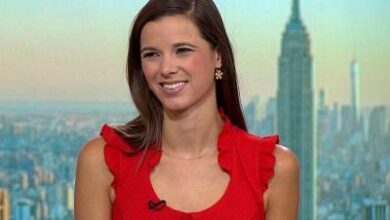
To solve Europe’s migrant crisis, give them a place of their own
The European Union has suffered three systemic shocks in the past five years. The most existential of these is the euro crisis and the most insidious is the Russian invasion of Ukraine. But the most visible and heart-rending — not to mention most challenging to the EU’s easy assumption of its own virtue — is the recent flood of migrants from the south and east, fleeing poverty, suppression and war.
Both the euro crisis and the Russian encroachment in Ukraine threaten to undermine the EU’s development into a cohesive unit. The common euro currency was meant to pave the way to common politics, a giant step towards a European State, which turned out to be a step far too large.
The Russian challenge was a response to what President Vladimir Putin insists is an imperial project to surround and squeeze Russia. In response, he seized the southern Ukrainian province of Crimea and gave strong support to pro-Russian rebels over the Russian-Ukrainian border in Donbas, sparking a low-level war. A truce is now in the process of breaking down.
The migrant crisis is different. The tremendous scope of the influx is difficult to exaggerate. Refugees are fleeing Syrian and Libyan wars, Eritrean repression and sub-Saharan poverty. They are traveling to Europe across the Mediterranean, largely landing in two countries ill-equipped to help them: Greece and Italy, which both struggle with high unemployment and fragile economies. Some 70,000 migrants have come into Italy this year alone, with many hoping to get to more favorable job markets. The Greek island of Kos, located near Turkey from where many migrants set sail for the EU, has been partly overrun, forcing the Greek government to charter a cruise ship to take them to the mainland for processing.
This flood of refugees has stoked political tensions across the continent.. Italy’s Matteo Salvini, leader of the far-right Lega party, benefitting in the polls from the crisis, took on the Vatican’s charitable approach to the migrants. Responding to Pope Francis’ remark that pushing migrants back was “a crime,” he proclaimed, “A crime? No, it’s a duty!”
New barriers appear everywhere. Hungary’s migrant flood comes through neighboring Serbia, and it’s responded by building a double fence (one of razor wire, the second a 12-foot high wall) along the 110-mile frontier between the two states. It will be patrolled by a new border force, tasked to plug any breaches in the walls. Janos Lazar, chief of staff to Prime Minister Victor Orban, said earlier this week, “Demands to be let in to then take advantage of the EU’s asylum system are on the rise, aggressiveness is increasing.”
Migrants are aggressive in their efforts to get in because nothing else will do. The British have paid for fences to keep thousands of migrants camped out near the Calais entrance to the Chunnel from boarding trains or trucks. Earlier this week, the French and British interior ministers announced a joint control center in Calais.
The agreement included the provision of better accommodations, blasted by the Daily Mail as a “French farce,” a devious anti-British trick to encourage more migrants to come to Calais en route to the UK.

Immigration is toxic in the European Union but it doesn’t have a monopoly on the issue. The United States, historically most welcoming of poor and huddled masses, now seems to haveshifted away from that attitude. Republican supporters now, by a sizable majority, believe immigrants “burden” the country; even Democrats waver.
Politicians, except those who gladly accept the role of anti-immigrant tribunes, are caught between the rock of desperate migrants and the hard place of their citizens’ disdain. Some countries have been more generous than others: Germany stands out, taking 43 percent of all migrants this year – but its government has warned it can’t carry on at this rate forever.
Europe will not become more welcoming than it is now — likely, it will become less so. Men and women in zones of conflict or poverty will not become less determined to grasp a better future. And violent jihadist groups will not cease to infiltrate their militants into Europe through the cover of migration.
Thus the hope that the migrant crisis will abate, or be held back indefinitely, is a futile one. The rock will get rockier, the hard places harder. Popular and democratic pressure will close up Europe.
These impossible circumstances — coupled with basic human conscience — prompt us to think radically of larger solutions. Oxford economist and specialist in African affairs Paul Collier has suggested building more permanent camps, together with the provision of work for the migrants. His idea is in the right direction.
The United Nations should extend the good work its Commission for Refugees does. It should identify large areas where migrants could both live and work while retaining their nationality. Granted an indefinite stay, these migrants would also have the possibility of attaining citizenship. These areas would, by definition, be empty and probably inhospitable; the UN’s aim would be to make them comfortably habitable.
The proposal is full of problems and flaws: It’s thinkable only because the continuation of the present is unthinkable. It’s a kind of Marshall Plan for the wretched of the earth: fearsomely hard to do, but one that might really unite the nations in providing help to the desperate.
Reuters



